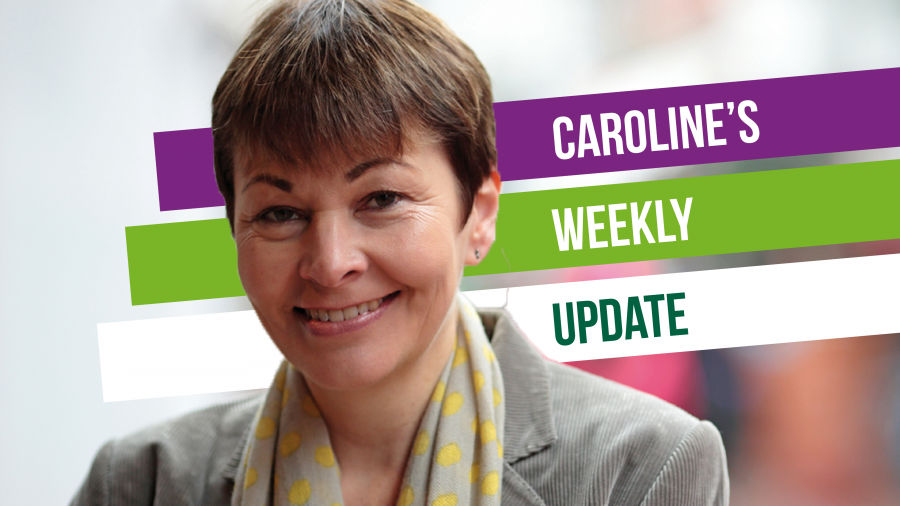Much of my time is spent addressing the issues and difficulties caused by coronavirus and the subsequent lockdown, taking part in virtual meetings with organisations on the frontline of the response to the virus, and with those who are suffering some of the worst impacts.
But as the lockdown is eased, the conversation is growing louder about how we rebuild as a fairer, more equal and more sustainable society.
Cultural & creative industries in Brighton
The cultural and creative industries is a vital part of our city’s economy, employing around 4000 people, and it’s one of the sectors that has been hardest hit by the lockdown and the need for social distancing. I joined the city’s other MPs in a (virtual) meeting with local arts organisations about immediate and long term support for the sector, and how we safely re-open and re-ignite Brighton’s cultural events as lockdown restrictions are eased. I’ll continue to do all I can to ensure the Government’s Self Employed support scheme is broadened to include far more businesses - for example those who take their income as dividends, and recent start-ups - as well as seeking confirmation that it will be extended beyond the summer. I’m lobbying for a tailored, sector specific rescue package, following the example set by Germany.
Coronavirus testing
The safe easing of the lockdown depends on having an effective testing and tracing system in place. I continue to put pressure on the Government to get track and trace in place as soon as possible, as well as speeding up the processing of tests.
Support for small businesses
Brighton and Hove City Council has handed out more than £62 million to thousands of small businesses in Brighton impacted by the coronavirus lockdown. It believes that several hundred have not yet applied, so if you are a small business, particularly in the hospitality, leisure or retail sector, you can apply via the Council’s website.
Local authorities have been under huge pressure during the crisis, which has come after a decade of savage cuts to their budgets. It’s estimated that their additional costs and lost income from coronavirus is four times the money provided to them by the Government. I wrote earlier this month to the Chancellor and Local Government minister calling for guarantees that this funding gap will be met, and I will be urging the Government to allow BHCC to keep any unclaimed money from the Business Grants Fund for its Discretionary Fund, which would allow the Council to help other important local businesses.
Re-opening schools
I have had many messages from teachers, parents and carers about the re-opening of schools and I share many of their concerns. The Government’s deadline of June 1st feels rushed and has not been properly thought-through. We still don’t have a systematic track and trace operation, nor is it clear how social distancing can be practised in schools, particularly with younger children or those with special educational needs. I am pressing ministers to work with teachers, parents and carers so that when schools do re-open, there is confidence that this is happening safely. You can read more on this on my website.
Build Back Better after Covid
I was very pleased to be co-host of an event organised by three All Party Parliamentary Groups on the prospects for recovery, how it will be paid for and how we build a better society. The virtual event was hosted by Channel 4 presenter Krishnan Guru-Murthy and had an excellent panel of experts including Sir Michael Marmot, professor of epidemiology at UCL, Prof Tim Jackson, professor of sustainability development at the University of Surrey, former chief scientific adviser Sir David King and Prof Mariana Mazzucato from UCL. There was a hopeful sense that, despite all the difficulties, we can create a better future as we move forward.
End of virtual Parliament
For the past six weeks, I and most of my fellow MPs have been following Government advice to work from home, joining parliamentary debates or questioning ministers via video-link. The Leader of the House has now decided this arrangement will end on June 2nd. There is no justification for this, nor do I accept claims that it is necessary in order for Parliament to properly scrutinise ministers. I have been able to question ministers, including the Prime Minister, directly under the current hybrid system (where some MPs are in the chamber, others on video-link) and spoken in debates. The work of tabling Early Day Motions and asking written questions has also continued.
As I argued in a piece for the iPaper, the forced return of MPs to Westminster is more about providing cheerleaders for the prime minister than upholding parliamentary democracy. It will also result in fewer MPs being able to take part in debates at any one time as the Speaker has, quite rightly, limited the number allowed in the Chamber for social distancing reasons, as well as disenfranchising those who might be shielding or who have family members with underlying health conditions.




Join The Discussion